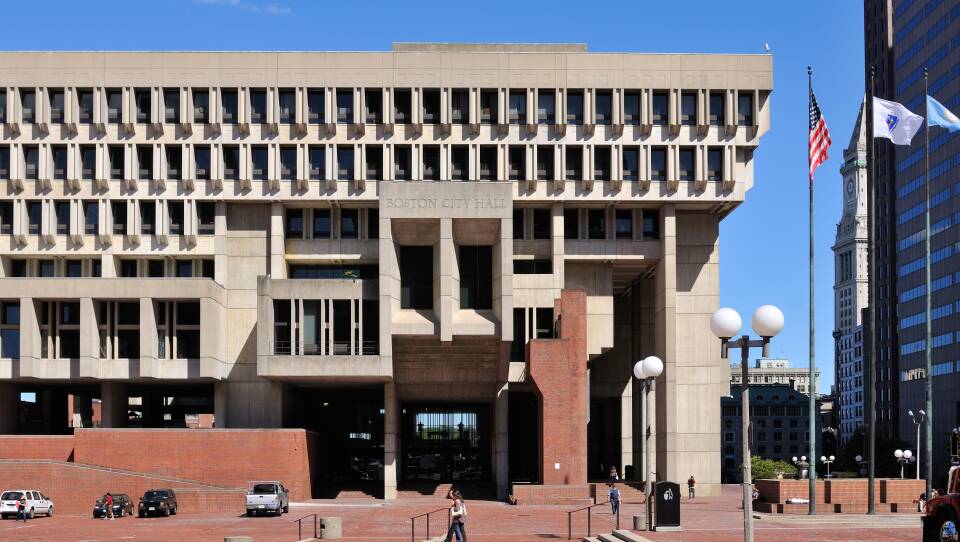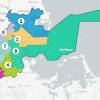Boston’s redistricting struggles moved toward conclusion Wednesday as the City Council approved a second voting map in as many years.
The proposal now goes to Mayor Michelle Wu. If approved, it will dictate where citizens vote in Boston's Sept. 12 preliminary election and for the next decade.
“We plan on reviewing this new map shortly and are thankful for the Council’s intensive work to reach consensus on a tight timeline,” said city spokesperson Ricardo Patrón in a statement after the vote.
The latest map, prompted by a federal ruling two weeks ago that the first likely violated the 14th Amendment by considering race too heavily, passed on a 10-2 vote, with councilors Julia Mejia and Kendra Lara voting against it.
The plan restores a cluster of predominantly white, high-turnout precincts to a Dorchester-based district. A federal judge found the council failed to justify that change in its now-banned map. It also, in a move that concerns some councilors and voting rights advocates, adjusts the precincts that make up Mattapan, Boston’s neighborhood with the highest concentration of Black residents.
Lara, whose district includes part of Jamaica Plain, West Roxbury and Roxbury, said the newly approved map prioritizes preserving certain neighborhoods while weakening the power of voters of color to elect candidates of their choosing.
“I think that what we saw was the old guard of the City of Boston doing everything possible to hold on to their power” at the expense of other communities, she argued. Lara believes that the new map exposes the city to another lawsuit, based on highly nuanced mapmaking rules that instruct their architects to maintain communities with similar social, economic, cultural and political interests.
“I don’t think we did it in a way that is least disruptive and I don’t think that we got the communities of interest right,” Lara said.
The map's approval comes as lawyers for the city filed a legal motion asking a judge to deny a coalition of advocacy organization seeking to intervene in the lawsuit that brought on the map’s redraw.
Advocates from the NAACP Boston Branch, MassVOTE, the Chinese Progressive Association and others are claiming a lack of faith in the council’s ability to draw maps in a way that sufficiently protected equal voting opportunities for Boston’s communities of color, arguments they put into court filings and made across several days of testimony to the council.
Councilors’ overwhelming vote in favor of the map Wednesday deviated greatly from their several prior days of contentious discussions on shifting the boundaries of the city’s nine voting districts.
In public meetings, councilors spent hours questioning one another’s motives, advocating for various precinct moves and making veiled accusations of invisible alliances playing into the map’s district shapes.
Councilor Ruthzee Louijeune, who spearheaded the latest iteration of redistricting from the council’s Civil Rights and Immigrant Advancement Committee, explained the acrimony as an inherent part of elected officials redrawing their own political boundaries.
“That’s redistricting. It can be a very difficult, nasty process,” Louijeune told reporters.
“I think that we continue to make great strides as a city and I think that is reflected here in the map. ... We do have a lot of work left to do to make sure that all of our communities feel empowered,” she said, touting her personal ties to Mattapan, the neighborhood where she grew up.
Louijeune said she will likely put forward legislation to implement a third-party redistricting panel. If approved, that measure could see its first test the next time the council has to draw a new map after the 2030 census.








